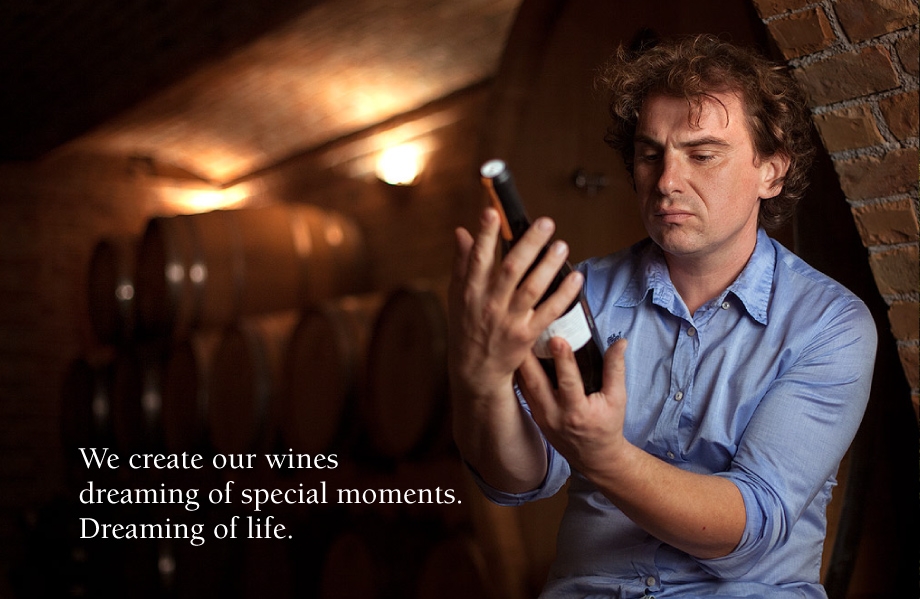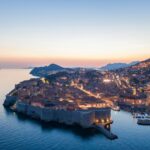All of the interviews in the series are going to be similar, with 8 same questions and 2 questions tailored specifically for each winemaker (those two will be easy to spot, as they will be coloured differently.
Could you please introduce yourself, your winery, your wines for our readers. How did you get into winemaking, and can you tell us a bit about your ethos of making wine?
Tomac winery is a family winery, with 7 hectares of wineyards. Our family has made wine for generations, as my great-grandparents also grew vines and made wines. in the late 80s we started making and selling wine under our own family label – 1987 was our first harvest under our label. Our ethos, our wine philosophy is based on natural viticulture and winemaking, with a lot of understanding of nature and natural processes, and a minimum of human intervention into it.
How was the last harvest in your vineyards? What do you expect of the 2016 wines? Do you have any specific expectations, plans or hopes for this vintage?
2016 was one of the best harvests for us, as during the blooming period we had ideal weather conditions, and that continued for the remainder of vegetation as well. We had rainfall at all the right times, and slow ripening in the later stages of vegetation, right before the harvest.
We expect that 2016 might be our best vintage for the sparkling wines ever, and a very good year for our still wines.
What are the Croatian wines (up to three whites and three reds) you think everyone should buy and taste at least once (not including any of yours, please)? Why?
Dingač Bura, Clai Brombonero, Pinot Noir Korak, sparkling wine Šember Rose, Roxanich Malvazija, Enjingi Venje
Your sparkling wine Tomac Amfora was recently put on Decanter’s “Most exciting wines of 2016” list, which is a first time that a Croatian wine has gotten that kind of recognition. What makes this sparkling wine so special, exciting and interesting? What does the fermentation in amphorae do for a sparkling wine? Where and how do you procure the amphorae you use?
We get our amphoras through mr. Antonio Ivančić, and they come from Georgia.
Amphora is an ideal vessel for creating an honest wine. For the amphora to make sense, you need to produce the best possible grapes that were not treated chemically. That way you will preserve the energy and the liveliness of wine, and that is the key element.
It is first wine in the world of its kind and we are very proud that it was recognized as such by the most influential wine magazine in the world. It confirms that our vision was correct.
What do you think about the situation in the Croatian winemaking these days? What would you change if you could, regarding the legislation, the market or anything else? Would you agree with the idea that Croatian wines are too expensive, which is something you can often hear?
I’m afraid I really do not have time to think about these matters. I have to be focused at my work in my vineyard and the cellar, and how to fulfil my obligations to the legislators. The only thing I can say is that I believe that there’s too much unnecessary administration and paperwork.
The matter of the price of wine is relative… some wines are too expensive, while others are too cheap. The market regulates that.
How do you see the relationship between the Croatian restaurants and the winemakers? Do Croatian restaurants promote and appreciate Croatian wines as much as they should, how do their margins affect the sale of Croatian wines?
Restaurant margins are also something I do not want to get involved in. My opinion is that the wine lists in restaurants tend to be too boring; however, the customers are also not too demanding.
Recently an increasing number of Croatian winemakers started experimenting and producing sparkling wine. What is your opinion of those attempts, how successful are they, is it possible that they will get better with time? Can we, for instance, expect that soon we’ll see a great success from a sparkling wine made using plavac mali grapes?
We’ve been making sparkling wine since 1992. We are lucky to be located here on Plešivica, as it is ideal for those wines both in terms of soil composition and the climate. I think that what has been going on for a while does not make any sense, because it’s not good to make any type of wine in all of the regions. But, that is related to what I mentioned, how the customers are not too demanding, and so – almost anything goes. I’d like to compare that and ask: why don’t they grow cabernet sauvignon in Burgundy or pinot noir in Bordeaux?
What do you think about the future of wine-making in Croatia, strategically how should it advance? Should we attempt exporting more Croatian wines? Can you comment on the changes which happened after our accession, specifically weigh in on the benefits of a larger market for export vs. the dangers of easier import of cheaper wines?
The question of export is really complicated, and things do not happen overnight there. I can tell you from my perspective, as a small family winery owner: our export really matches the amount of effort we put into it. For real, honest wines sales should not be the problem, but you need to understand the market. And that understanding comes only with experience.
Do you think new vineyards in Croatia should be mostly indigenous varieties, or should more international wines be planted?
If there are good indigenous varieties, we should plant them and work hard on their promotion. That is important because that way you work towards getting renown for a region, and show its potential and diversity.
Paint us a picture of a perfect setting for enjoying a bottle of your wine. Which bottle did you choose, why?
I recommend that you have wine with a meal, and in those moments when you want to enjoy wine.











